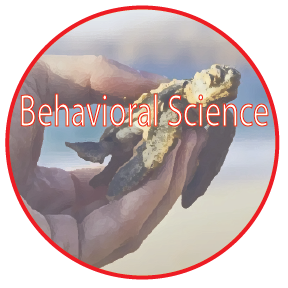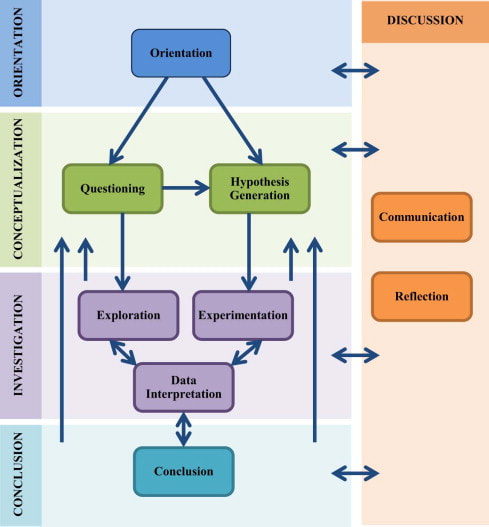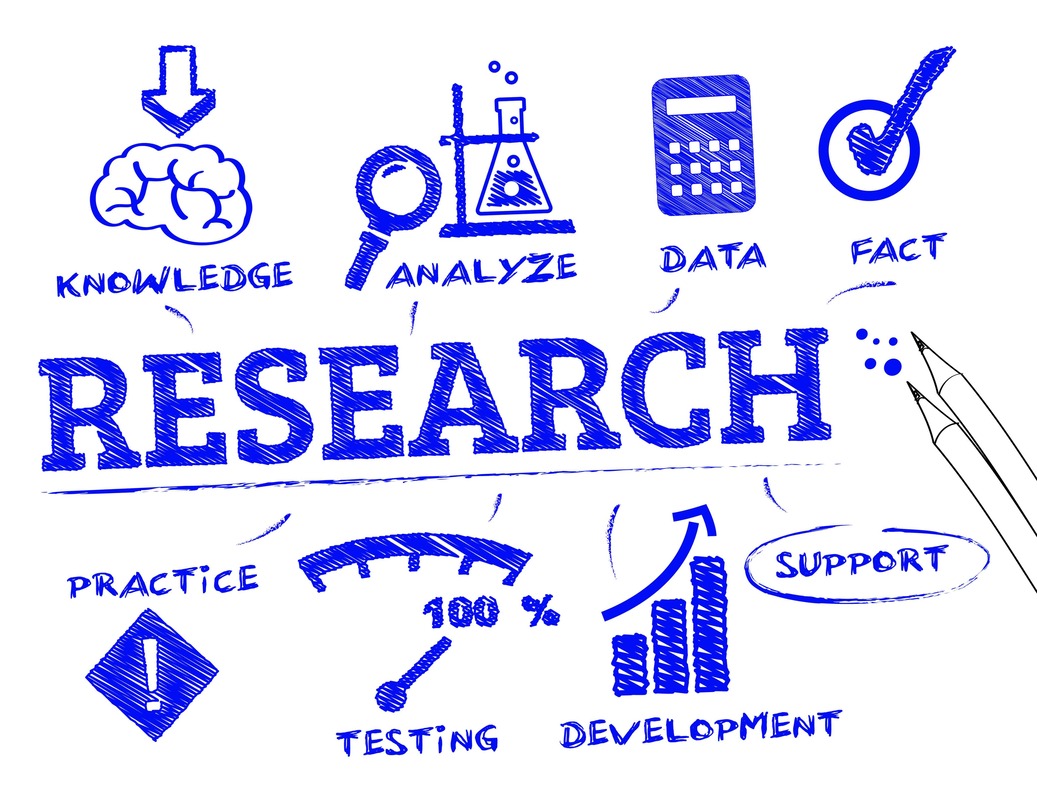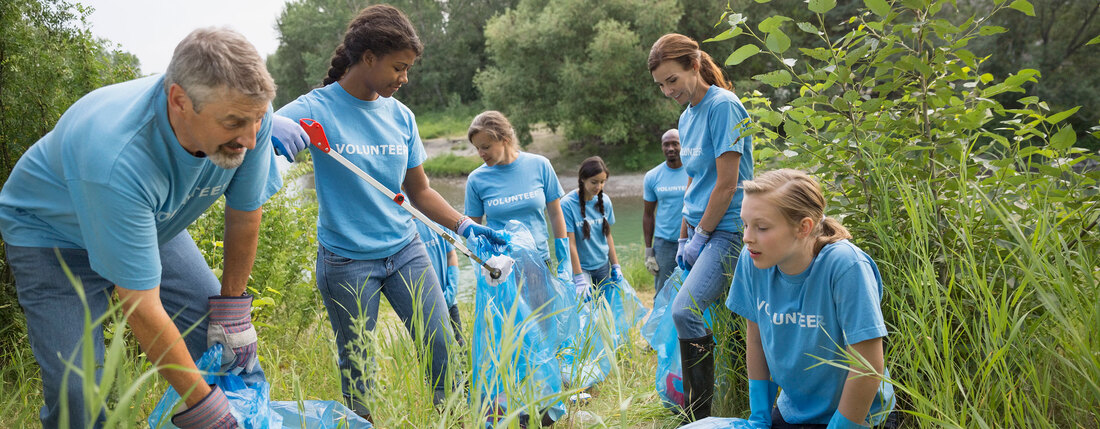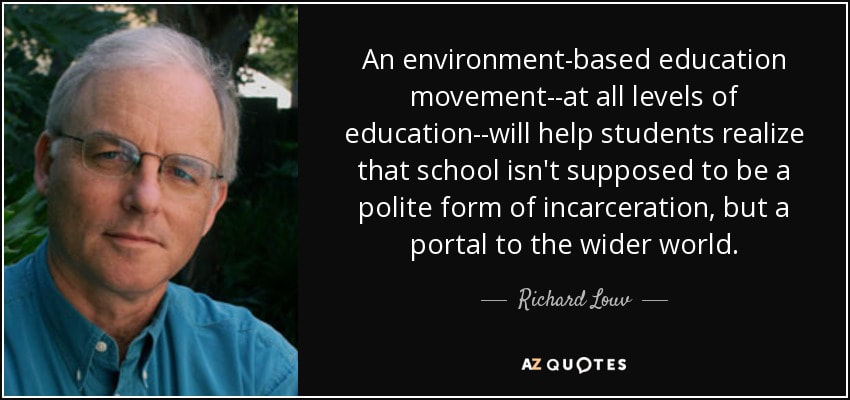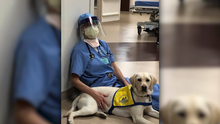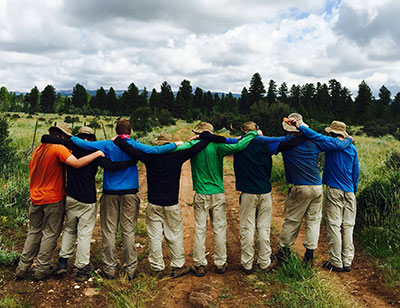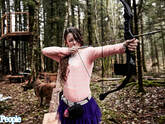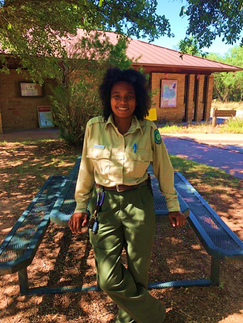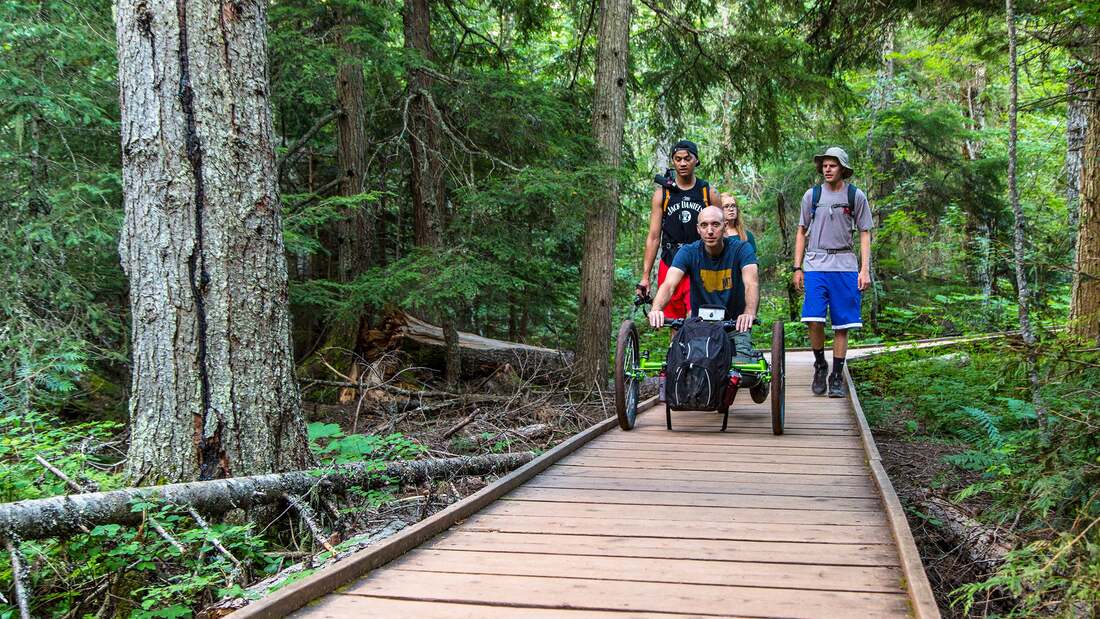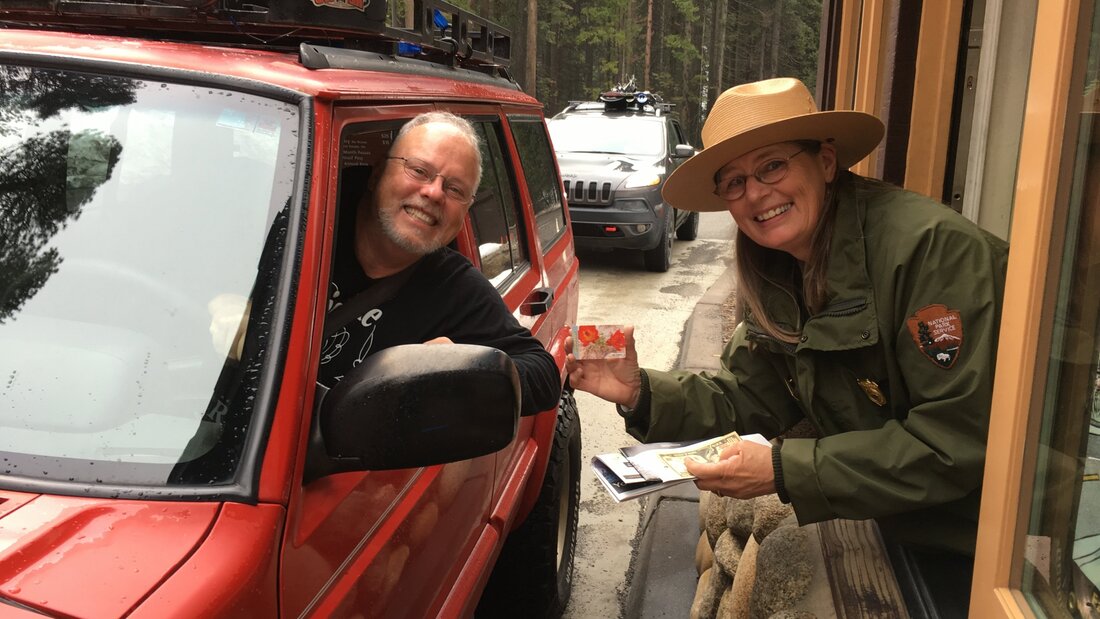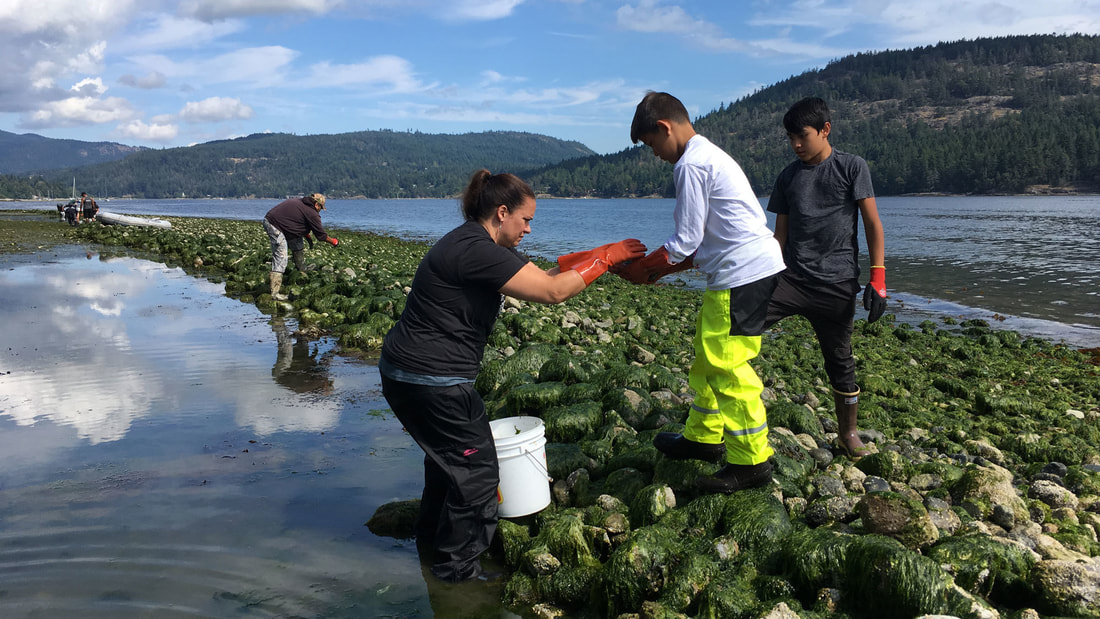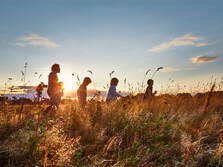Welcome to Mr. Tredinnick's Behavioral Science Class!
|
Behavioral Sciences incorporates the ideas of the social sciences, specifically the principles of sociology and psychology, to better understand the ideas of group dynamics, and individual behaviors. Students will utilize scientific theory and methods to examine the principles of behavior, socialization, and the incorporation of individuals, in the context of a single individual, or as part of a larger whole. By planning and conducting studies and developing resources, to be complete around the local community, students will gain a better understanding of the types of interactions and learned behaviors that take place around them, and come up with methods to improve a social experience. A large emphasis will be placed on the usage of scientific theory and methods, to design and conduct social experiments with the goal of increasing awareness of social forces, and improving an experience. In doing so, students will improve their understanding of scientific research and research methods.
Behavioral Science Discussion Questions |
Semester I Course Map
Semester II Course Map
Learning Objective: Students will work through the topics to consider when doing research in the social sciences and be able to compare them to how research is conducted in the Physical Sciences. Students will need to be able to describe, explain, and evaluate concepts related to research design principles on an end of unit test.
End Product: Students will write an in-class leveled assessments that includes concepts and principles covered over the course of the unit. The assessment will focus of factual, conceptual, theoretical, and practical elements of designing and conducting research in the social sciences.
Field Aspect: Observations on Grounds, Data Collections in Exhibits
|
Week 1 - The Social Perspective
(August 16-20) Module 1.1 - Course Introduction
Guiding Inquiry: What will be be doing this year? Forum: Build a Community (1.1) - Course Introduction - Getting to Know You Field Experience: Be Curious (Student Choice) Discussion: The Place of Psychology and Sociology in Conservation Module 1.2 - Tools and Methods
Guiding Inquiry: How do social scientists go about the process of conduction research and why is observation such an important piece of that? Forum: A Pseudo Science? (1.2) Field Experience: Powers of Observation (Student Choice) - Social Science Research Methods (Notes) HW: How Different are Natural and Social Sciences? Lewontin |
Week 2 - The Researcher's Method
(Aug 23-27) Module 1.3 - Research Determination
Guiding Inquiry: What distinguishes social science from the natural sciences, and how are they similar? Forum: Pick a Passage (1.3) Discussion: Place of Social Science (based off Lewontin article) - Profiling a Researcher (Assignment) - Qualities of a "Good" Researcher (Notes) Module 1.4 - The Research Process
Guiding Inquiry: How does the research process in the social sciences compare to the physical sciences? Forum: Working the Front End (1.4) - The Inquiry Framework (Notes) Field Experience: Complications of Research (student choice) Week 4 - Reporting Findings
(Sept 6-10) No School Sept 6th - Labor Day Module 1.7 - Spreading the Knowledge
Guiding Inquiry: How does research get shared out so it can be useful after it is completed? Forum: Research for the sake of It? (1.7) - Sharing Academic Work (Notes) - Review for next class' test HW: Unit I Celebration of Knowledge + Inquiry and Social Research Study Guide Module 1.8 - Celebration of Knowledge
Guiding Inquiry: How is research conducted in the social sciences and what special considerations need to be made? Forum: Q/C/C/C/CofO (1.8) Unit I Assessment: Inquiry and Social Research (Link will become active on test day) |
Week 3 - Research Considerations
(Aug 30-Sept 3) Module 1.5 - Ethics in Research Practice
Guiding Inquiry: What considerations need to be taken for the safety and reliability of research studies? Forum: Differences in Approaches (1.5) - Ethics in Research (Assignment) + Social Science Research: Principles, Methods, and Practices - Ethics in Environmental Research (Notes) HW: Quiz on Research Ethics Module 1.6 - Data in the Social Sciences
Guiding Inquiry: What types of information are social scientists interested in and how is that data classified? Forum: All About Data (1.6) - Social Science Data (Notes) Field Experience: Exploring Data (Dome) |
Unit I NotesEthics in Environmental Research (Module 1.5)
Qualities of a "Good" Researcher (Module 1.3)
Sharing Academic Work (Module 1.7)
Social Science Data (Module 1.6)
Social Science Research Methods (Module 1.2)
The Inquiry Framework (Module 1.4)
|
Unit I Assignments
| ||||||||||||||||
Unit I AssessmentInquiry and Social Research Test
(Link will become active on Test Day) |
Unit I Resources |
Learning Objective: Students will study the psychological principles of operant and classical conditioning to develop a procedure meant to encourage environmentally friendly behavior.
End Product: Students will be writing and designing a children's book or video (or something else with teacher approval) that encourages environmentally friendly behaviors using the concepts covered throughout the course of the unit. Students will incorporate the ideas of Motivation, Conditioning (Operant and Classical), and Behavior into the story development (though not needing to be explicitly mentioned). The completion of this project will allow students to demonstrate their mastery of the concepts to the point that they can create a situation where the ideas could be successfully used to encourage environmentally mindful behaviors.
Field Aspect: Training Demonstrations, Visit Exhibits, Guest Speaker
|
Week 5 - Motivation
(Sept 13-17) Module 2.1 - Intrinsic and Extrinsic Motivation
Guiding Inquiry: What is motivation, and what impact can it have in driving people to do what they do? Forum: What Drives You? (2.1) Field Experience: Animal Motivation (Jungle) Class Discussion: Using Motivation + Crash Course: The Power of Motivation + Motivating People to Protect Nature - Principles of Motivation (Notes) HW: Quiz on Motivation Next Class Module 2.2 - Motivation for Conservation
Guiding Inquiry: How can we use an understanding of motivation to better encourage people to want to participate in conservation activities? Forum: Obstacles to Conservation (2.2) Field Experience: Use the Zoo! (Student Choice) + Dr. Seuss - The Lorax HW: Brainstorm 1: Plot Summary + Submission Form Week 8 - Behavior
(Oct 4-8) No School Oct 7-8 Parent/Teacher Conference Module 2.7 - Empathy and Compassion
Guiding Inquiry: What is empathy, and what impact can it have in driving people to do what they do? Forum: The Stronger Emotion (2.7) Class Discussion: Triggers as a Good Thing? + Theres a Rang Tang in my Bedroom + Most Shocking Second in a Day + Still the most Shocking Second in a Day Field Experience: Make them want to Care (Assignment) HW: Story Boards Due Next Class |
Week 6 - Operant Conditioning
(Sept 20-24) Module 2.3 - Introduction to Conditioning
Guiding Inquiry: How can the processes used to teach "correct" behaviors be utilized to promote conservation? Forum: Conditioning Conservation? (2.3) Field Experience: Using Motivations (Sea Lions) + Keeper Talk + Field Experience Debrief Module 2.4 - Principles of Operant Conditioning
Guiding Inquiry: How has research in the field of psychology helped shape our understanding of learned behaviors? Forum: Conditioning at any Age? (2.4) - Operant Conditioning (Notes) HW: Brainstorm 2: Project Pitch + Submission Form Week 9 - Project Development
(Oct 11-15) No School Oct 11th Module 2.8 - Conditioning Environmentalism
Guiding Inquiry: How can the principles of psychology be used to encourage environmentally friendly behavior? Forum: Building Empathy Towards All (2.8) Work Time: Conditioning Environmentalism + Checking in on Story Boards Project Deliverable: Progress Report Module 2.9 - Conditioning Environmentalism
Guiding Inquiry: How can the principles of psychology be used to encourage environmentally friendly behavior? Forum: Team Update (2.9) Work Time: Conditioning Environmentalism Project Deliverable: Final Checkin HW: Final Draft Due Next Class! |
Week 7 - Classical Conditioning
(Sept 27-Oct 1) No School Oct 1st Module 2.5 - Principles of Classical Conditioning
Guiding Inquiry: How can classical conditioning be used to encourage appropriate behaviors? Forum: Reviewing Principles of O.C. (2.5) - Project Pitches - Conditioning Conditioning (Assignment) + Example: The Office + Pavlov's Theory of Classical Conditioning + Simply Psychology: Pavlovain Conditioning Module 2.6 - Learned Behaviors
Guiding Inquiry: What does conditioning look like in practical applications? And how can it be extended into the animal sciences? Forum: Distinguishing Conditioning (2.6) Field Experience: Old Dog, New Tricks (Watson) + Keeper Talk + Debrief HW: Brainstorm 3: Story Boards + Due October 12th Week 10 - Environmental Learning
(Oct 18-22) Module 2.10 - Project Presentations
Guiding Inquiry: How can the principles of psychology be used to encourage environmentally friendly behavior? Forum: Project Submission (2.10) - Project Presentation Day - Individual Accountability Turnin Field Experience: Finding Inspiration to Fight On |
Unit II NotesOperant Conditioning (Module 2.4)
Principles of Motivation (Module 2.1)
|
Unit II Assignments
| ||||||||
Unit II Assessment
Brainstorm 3: Storyboards
|
Unit II Resources |
Learning Objective: Students will work through the process of developing a meaningful educational experience by incorporating in education psychology concepts such as Erickson's and Piaget's States of Development, Maslow's Hierarchy of Needs, and Bloom's Taxonomy.
End Product: Students will create an educational product for visitors to complete that corresponds with an exhibit at the Zoo. Students will collect information about their particular exhibit through field study and working with Zoo staff to incorporate into their product. Students will present their final product, and how they incorporated in psychological principles to build a learning experience that would be meaningful for zoo guests.
Field Aspect: In exhibits looking at educational materials and applications of concepts, meeting with zoo keepers, curators, or Education staff.
|
Week 11 - Giving the tools to Learn
(Oct 25-29) Module 3.1 - Maslow's Hierarchy of Needs
Guiding Inquiry: What factors have to be considered in order for learning to happen? Forum: Setting the Mood to Learn (3.1) - Educating about Conservation (Project) + Project Introduction + Brainstorm 1: Pre-Project Planning + Brainstorm 3: Incorporating Ed Psych - Maslow's Hierarchy of Needs (Notes) - Importance of Sonder (Assignment) HW: Comprehension Quiz Next Class Module 3.2 - Fact & Skill-Based Learning
Guiding Inquiry: Why is it important for lessons to be developing student's learning skills as well as their content knowledge? Forum: Recapping Maslow (3.2) Discussion: Brainstorm 1 Field Experience: Skill and Content Education (Student Choice) - Educating about Conservation (Project) + Brainstorm 2: Using what is available Week 14 - Project Refinement
(Nov 15-19) Module 3.7 - Project Testing & Edits
Guiding Inquiry: What are the benefits of peer review? Forum: Check it Over for me? (3.7) - Educating about Conservation (Project) + Project Work Time + Beta Testing Field Experience: Beta Testing HW: Review Project Rubric Module 3.8 - Project Testing & Edits
Guiding Inquiry: What are the benefits of gradual development and checking progress along the way? Forum: Project Check-in (3.8) - Educating about Conservation (Project) + Project Work Time + Refine and Finish HW: All projects completed by start of class |
Week 12 - Development Psychology
(Nov 1-5) Module 3.3 - Erikson's Psychosocial Stages
Guiding Inquiry: How do your psychological needs change as you age and develop? Forum: Changing Education? (3.3) - Erikson's Psychosocial Stages (Assignment) + Simply Psychology: Erik Erikson Field Experience: Erikson at Every Level (Dome) - Educating about Conservation (Project) + Brainstorm 3: Incorporating Ed Psych Module 3.4 - Piaget's Stages of Cognitive Ability
Guiding Inquiry: How do people's cognitive abilities change as they age? Forum: Learning at Every Age (3.4) - Piaget's Stages of Cognitive Ability (Notes) Field Experience: Piaget's Adventures (Adventure Trails) - Educating about Conservation (Project) + Brainstorm 3: Incorporating Ed Psych + Brainstorm 4: Meeting with Experts HW: Brainstorm 4 Submission Form Week 15 - Project Wrap-Up
(Nov 22-26) No School Nov 24-26 - Thanksgiving Module 3.9 - Project Presentations
Guiding Inquiry: How can educational psychology be applied to develop meaningful learning experiences to help teach about conservation? Forum: Project Turn in (3.9) - Educating about Conservation (Project) + Project Presentations HW: Project Reflection Submission Form |
Week 13 - Pushing Students to Think
(Nov 8-12) Module 3.5 - Bloom's Taxonomy
Guiding Inquiry: Why should instructors use a variety of teaching methods to deliver materials? Forum: Engaging All Learners (3.5) - Designing Blooms Taxonomy (Assignment) - Educating about Conservation (Project) + Brainstorm 3: Incorporating Ed Psych HW: Wear Shadow Shirts next class HW: Brainstorm 4 MUST be complete HW: Comprehension Quiz Next Class Module 3.6 - Project Development
Guiding Inquiry: Why is it important/necessary to collaborate with experts for information? Forum: Recapping Blooms (3.6) Field Experience: Meeting with Experts (Student Choice) - Educating about Conservation (Project) + Project Work Time |
Unit III NotesMaslow's Hierarchy of Needs (Module 3.1)
Piaget's Stages of Cognitive Ability (Module 3.4)
|
Unit III Assignments
| ||||||||||||||||||||||||||||||||
Unit III AssessmentBrainstorm 4 Submission Form (Module 3.4)
Project Reflection (Module 3.8)
Beta Testing (Module 3.7)
|
Unit III Resources |
Learning Objective: Students will learn the importance of personal mental health care and how to practice good self care in fields associated with conservation and animal care by learning about concepts such as stress, mental disorders, compassion fatigue, and burnout, and use what they learn to develop a personal mental health plan.
End Product: Students will develop a mental health plan to help them as they move on in their education and as they look to move into their chosen career. Students will specifically be looking at some of the issues they can expect to have to deal with as they continue their education and enter the workforce in conservation or animal care. Just as important as the work they will be doing, is taking care of themselves so they continue their work. The mental health plan will work them through the process of identifying their triggers, how they react, and developing a plan to manage and potential mental health issues that may arise.
Field Aspect: Field excursions out to exhibits, guest speakers
|
Week 16 - Stress & Depression
(Nov 29-Dec 3) Module 4.1 - Handling Stress
Guiding Inquiry: Why is personal mental health important in ensuring your ability to do what you want/need to do to your full potential? Forum: What is stress? (4.1) Discussion: Personal Triggers Field Experience: Seeking out Solitude (Student Choice) - Dealing With Stress (Assignment) Module 4.2 - Depression and Mental Disorders
Guiding Inquiry: Why are appropriate discussions about mental illness and mental disorders needed, and how can we help others? Forum: When to step in? (4.2) - Mental Disorders (Notes) - Treating Mental Disorders (Assignment) + Simply Psychology - Medical Model HW: Comprehension Quiz Next Class |
Week 17 - Occupational Distress
(Dec 6-10) Module 4.3 - Compassion Fatigue
Guiding Inquiry: Why can careers that involve workers caring for others lead to high levels of work-related stress and anxiety? Forum: Recapping Mental Disorders (4.3]) - Symptoms of Compassion Fatigue (Notes) - Compassion Fatigue in Animal Care (Assignment) Discussion: The Only One Caring??!? Module 4.4 - Burnout
Guiding Inquiry: How can animal companions be used to help alleviate symptoms of mental disorders? Forum: Dangers of Working Too Hard (4.4) Discussion: Working Animals + How Rescue Dogs are Helping Veterans with PTSD Field Experience: Support Animals (Sulla) |
Week 18 - Being Proactive
(Dec 13-17) Module 4.5 - Personal Mental Health Plan
Guiding Inquiry: Why is it helpful to have a plan before there is an issue? Forum: Unhealthy Habits (4.5) - Make a Mental Health Plan (Assignment) + Work time Module 4.6 - Personal Mental Health Plan
Guiding Inquiry: Why is it helpful to have a plan before there is an issue? Forum: What works for you? 4.6) - Make a Mental Health Plan (Assignment) + Finish + Project Reflection Field Experience: Get Away from it All (Student Choice) HW: Course Survey |
Unit IV NotesMental Disorders (Module 4.2)
Symptoms of Compassion Fatigue (Module 4.3)
|
Unit IV Assignments
| ||||||||||||||||||||||||
Unit IV AssessmentProject Reflection (Module 4.6)
|
Unit IV Resources |
|
|
Semester Break (Dec 18-Jan 4) |
|
Learning Objective: Students will investigate the sociological role of groups and then advantages and disadvantages of being able to connect meaningfully with each and the types of factors that affect group cohesion.
End Product: Students will make some sort of advertising materials (sequence of posters, tv ad, radio advertisement) meant to encourage people to visit a particular natural areas or a general appeal to reconnect with nature. Students will incorporate in sociological principles of groups, the influence of technology on social connections, and the potential of nature in the development of social bonds.
Field Aspect: Learning experiences in different exhibits around the zoo
|
Week 1 - Introduction to Groups
(Jan 3-7) No School Jan 3-4 - Winter Break Module 5.1 - Processes of Socialization
Guiding Inquiry: What sociological forces contribute to the development of new members? Forum: Largest Contributing Factor? (5.1) Field Experience: It takes a Village (Gorillas) - Perspectives of Sociology (Notes) - Contributions of All? (Assignment) - Submission Form |
Week 2 - Group Socialization
(Jan 10-14) Module 5.2 - Importance of Groups
Guiding Inquiry: Why are groups necessary for humans in the organization of societal structures? Forum: In Need of A Group (5.2) Field Experience: Role of Groups (Choice) + Group Discussion: Report Back - Sociological Groups (Notes) Module 5.3 - Necessity of Groups
Guiding Inquiry: How are social groups an integral part of the development of humans as individuals? Forum: Group Mimic (5.3) - Group Functions (Notes) Group Discussion: Groups in Other Places |
Week 3 - Group Development
(Jan 17- 21) No School Jan 17 - Martin Luther King Day Module 5.4 - Group Dynamics
Guiding Inquiry: How do group roles and supports change over time? Forum: Groups Over Time (5.4) Group Discussion: Changing Social Roles - Developing Groups (Notes) Module 5.5 - Group Exclusion
Guiding Inquiry: What impact does group exclusion and rejection have on the socialization of an individual? Forum: Biggest Impact (5.5) Field Experience: Reliant on Others (Aquarium) - Group Exclusion (Notes) HW: UNICEF - Cyberbullying |
|
Week 4 - Fitting into Societal Roles
(Jan 24- 28) Module 5.6 - Group Deviance
Guiding Inquiry: How can the psychological ideas of conformity affect social order? Forum: Doing the Unredeemable (5.6) Group Discussion: UNICEF - Cyberbullying - Conformity and Deviance (Assignment) Field Experience: Finding Norms in Others (S.C) Module 5.7 - Group Re-admission
Guiding Inquiry: How is deviance treated and what measures can be used to reapply conformity to groups? Forum: Role in Group Alignment (5.7) - Perspectives of Justice (Assignment) + The Conversation - Why Rehabilitation, not punishment, makes economic sense + The Federalist - Why Punishing Criminals can be more merciful than 'Rehabilitation' + Media Biased Factcheck Group Discussion: Sociological views of 'Justice' |
Week 5 - Assessing Group Concepts
(Jan 31- Feb 4) Module 5.8 - Grouping Groups
Guiding Inquiry: How can a sociological understanding of groups be combined with an appreciation of nature? Forum: Impact of Technology? (5.8) - Grouping with Nature (Assignment) HW: Next Class In-Class Writing Test Module 5.9 - Celebration of Knowledge
Guiding Inquiry: Students will apply their knowledge from the unit to complete an end of unit assessment Forum: Q/Q/C/C/CoR (5.9) - Unit V Test - Reconnecting with Groups |
|
Unit V Notes
Developing Groups (Module 5.4)
Group Exclusion (Module 5.5)
Group Functions (Module 5.3)
Perspectives of Sociology (Module 5.1)
Sociological Groups (Module 5.2)
|
Unit V Assignments
| ||||||||||||||||||||||||
|
Unit V Assessment
|
Unit V Resources
|
Learning Objective: Students will be able to identify different social constructs and evaluate the impact that membership in a particular classification has on "environmental wellness" by completing a spatial analysis looking at attendance to natural areas, participation in outdoor activities, or Environmental Justice based concerns.
End Product: Students will be comparing the relationship between different groups and their access to natural places and healthy environments. Through completing a spatial analysis using ArcGIS and Storymaps students will be looking at the differences (if any) between access, participation, and attendance to natural areas or activities on a local, state, or national level. This could be done through the lens of "Marginalized communities," "Environmental Justice," or a metric of the student's choosing. Students will decide the data metrics to further examine after completing classroom instruction in the different societal "categorizations" that are commonly used. They will then choose a further group to examine and look further at how that particular group of people interacts with the environment and/or is affected by the environment. Data will be collected, mapped, and shared using ArcGIS and Storymaps.
Field Aspect: Learning experiences in different exhibits around the zoo
|
Week 6 - Difference in Experience
(Feb 7- 11) Module 6.1 - Societal Marginalization
Guiding Inquiry: How might someone's experience and access to the environment depend on societal standards? Forum: Intro to Social Constructs (6.1) Group Discussion: Disclaimer - Clearing the Air (Assignment) Group Discussion: Clearing the Air Module 6.2 - A Class on Class
Guiding Inquiry: What are social classes and how do they they affect access to environmental health? Forum: Truly the Same Access? (6.2) - Perspectives of Class (Notes) + National Parks: Emblems of Democracy HW: Section 1 - Introducing the Social Construct + In StoryMap |
Week 7 - Access to Spaces
(Feb 14- 18) No School Feb 17-18 - P-T Conferences Module 6.3 - Gendered Spaces
Guiding Inquiry: What are unique about the social constructs of gender norms and how can they have an impact about an individual's access to wild places and a healthy environment? Forum: How Does it Connect? (6.3) Group Discussion: Gender in Conservation - Highlighting the Issue (Assignment) + UNEP: Promoting Gender Equality + Submission Form HW: Section 2 - Defining Research Scope + In StoryMap |
Week 8 - Spaces and Places
(Feb 21- 25) No School Feb 21 - Presidents Day Module 6.4 - Differing Perspectives
Guiding Inquiry: How have people had different relationship over time with the environment based on the social construct of race? Forum: Our "Need" to Categorize (6.4) - Black Faces, White Spaces (Assignment) + TedX - Whose Story Counts? - Restricted Movement (Assignment) + NYPL: The Green Book + History: The Green Book + Smithsonian: The Green Book Module 6.5 - Generational Divides
Guiding Inquiry: How do different age groups interact with the environment differently and is there a "correct" way to? Forum: Need to Breath (6.5) - A Matter of Connection (Assignment) + Submission Form Group Discussion: A Matter of Connections HW: Prepare for Section 3 - Have data ready to use for next class |
|
Week 9 - Project Work Time
(Feb 28- Mar 4) No School Mar 4 - Science Fair Module 6.6 - Student Work Day
Guiding Inquiry: How do different social Constructs affect people's access to wild spaces and healthy environments? Forum: Project Check-in (6.6) - Inequality in Access (Unit VI Assessment) Module 6.7 - StoryMap Refresher
Guiding Inquiry: How do different social Constructs affect people's access to wild spaces and healthy environments? Forum: Project Check-in (6.7) - Inequality in Access (Unit VI Assessment) - ArcGIS StoryMaps |
Week 10 - Finish Project
(Mar 7-11) Module 6.8 - Finalize Project
Guiding Inquiry: How do different social Constructs affect people's access to wild spaces and healthy environments? Forum: Project Check-in (6.8) - Inequality in Access (Unit VI Assessment) Module 6.9 - Presentation of Findings
Guiding Inquiry: How do different social Constructs affect people's access to wild spaces and healthy environments? Forum: Project Submission (6.9) - Inequality in Access (Unit VI Assessment) + Rubric on Pg. 5 |
|
Unit VI Notes
|
Unit VI Assignment
| ||||||||||||||||||||||||||||||||||||||||||||||||
|
Unit VI Assessment
|
Unit VI Resources
| ||||||
Learning Objective: Students will be able to explain the different components of culture and how membership in different cultural groups can affect the beliefs and values of individuals towards the environment by conducting a case-study examination of a particular indigenous community to see how their concerns, beliefs, and values towards the environment differ than the concerns, beliefs, and values of popular culture in the United States.
End Product: Select a Native American community somewhere in the United States and complete a cultural profile of that particular community. Students will be creating a story map that includes the location, and then information about the community's relationship with the environment, their unique cultural characteristics, their history, current issues the community faces, and so on. This project will be completed by conducting internet research and interviews with community members from a particular indigenous community within the United States.
Field Aspect: Students will be conducting interviews with community members
|
Week 11 - Core Principles of Culture
(Mar 21-25) Module 7.1 - Principles of Culture
Guiding Inquiry: What is culture and how can it be recognized? Forum: Defining Culture (7.1) - Principles of Culture (Notes) + The Lost Culture of Whales Module 7.2 - Multiple Perspectives
Guiding Inquiry: Why is it important to take into account multiple perspectives when approaching a place-based issue? Forum: Decolonizing Mindsets (7.2) + Radi-Aid - Local Knowledge (Assignment) + TED Talk: Jimmy Nelson - Before They + Jimmy Nelson's Before They Class Discussion: What We Lose |
Week 12 - Movement of Culture
(Mar 28-Apr 1) Module 7.3 - The Global Culture
Guiding Inquiry: How does culture move and how might it be received as it does? Forum: Modern Movers (7.3) - Spreading Cultural Traits (Notes) Module 7.4 - Diffusion Case Studies
Guiding Inquiry: How does culture move and how might it be received as it does? Forum: Ideas of Interest (7.4) - What Gets Around (Assignment) Class Discussion: Student Presentations |
Week 13 - Gather
(Apr 4-8) Module 7.5 - A Native Solution to a Global Issue
Guiding Inquiry: How can land management practices connected to cultural understandings be used to help protect and preserve wild places and spaces? Forum: Indigenous Rights (7.5) - Gather (Film) Module 7.6 - A Native Solution to a Global Issue
Guiding Inquiry: How can land management practices connected to cultural understandings be used to help protect and preserve wild places and spaces? Forum: Importance of Cultural Sovereignty (7.6) - Gather (Film) + Develop Questions to Ask |
|
Week 14 - Reaching out to Others
(Apr 11-15) No School Apr 15 - Easter Break Module 7.7 - The Example of Others
Guiding Inquiry: How can we use the examples set by unique cultural groups to better understand larger global issues? Forum: Tribal Considerations (7.7) + Preliminary Research + National Archive: American Indian Records + Smithsonian National Museum of the American Indian +NCAI: Tribes + American Philosophical Society: Center for Native American and Indigenous Research Module 7.8 - Project Research
Guiding Inquiry: How can we use the examples set by unique cultural groups to better understand larger global issues? Forum: Importance of a Name (7.8) - Understanding Cultural Teachings (Assessment) + Tribal Background |
Week 15 - Native Teachings
(Apr 18-22) Module 7.9 - Project Research
Guiding Inquiry: How can we use the examples set by unique cultural groups to better understand larger global issues? Forum: Environmental Concerns (7.9) - Understanding Cultural Teachings (Assessment) + Cultural Connections Module 7.10 - Project Research
Guiding Inquiry: How can we use the examples set by unique cultural groups to better understand larger global issues? Forum: Societal Connections (7.10) - Understanding Cultural Teachings (Assessment) + Environmental Concerns |
Week 16 - Project Wrap-up
(Apr 25-29) Special Event Apr 29 - ZO Presentations Module 7.11 - Project Presentations
Guiding Inquiry: How can we use the examples set by unique cultural groups to better understand larger global issues? Forum: Project Submission (7.11) - Understanding Cultural Teachings (Assessment) + Presentations - Student Survey (Seniors only) |
|
Unit VII Notes
|
Unit VII Assignments
| ||||||||||||||||||||||||||||
|
Unit VII Assessment
|
Unit VII Resources
| ||||||
Learning Objective: Students will be looking at societal connections with the natural world and the species we share it with while looking at the importance of stewardship.
End Product: Students will go through the process of setting goals of their own of what they want their relationship with nature to be and the justification (mentally and socially for it. Similar to building the mental health plan this will be something that the students are building for themselves but will be based in psychological and sociological principles.
Field Aspect: Students will be out and about in the natural environment
|
Week 16 - Outdoor Health
(May 2-6) Special Event May 5 - Senior Ceremony Module 8.1 - Last Child in the Wilderness
Guiding Inquiry: What is your current relationship with the outdoors and what areas can you improve on? Forum: Contemplate Your Outside Time (8.1) + TED Talk: Get Hooked on Nature |
Week 17 - Into the Wilderness
(May 9-13) Module 8.2 - A Surplus of Inside Time
Guiding Inquiry: How are people affected mentally and physically from their disconnect with nature and how can that be fixed? Forum: Barriers to Environmental Health (8.2) Class Discussion: Nature Deficit Disorder? - For your Health! (Assignment) + Submission Form Module 8.3 - Supertramp
Guiding Inquiry: How can people break from traditional norms in terms of societal organization and "putting down roots?" Forum: Nomad or No? (8.3) - Share "For Your Health" Submissions Class Discussion: Into the Wild - #Vanlife (Assignment) - Van Life: How To |
Week 18 - The Best Medicine
(May 16-20) Module 8.4 - Free From Worry
Guiding Inquiry: What are the benefits of taking a break and heading out into nature? Forum: A Mental Break (8.4) Class Discussion: Benefits of the Zoo + What are the Benefits of Fresh Air? Module 8.5 - Making a Health Plan
Guiding Inquiry: Why is it important for us as social creature to connect, and disconnect, with one another in wild places and spaces? Forum: More to Do? (8.6) - Social Environmental Health (Assessment) + Submission Form - Student Survey |
|
Week 19 - NAME
(May 23-27) Last Day of School - May 25 Module 8.6 - Name
Guiding Inquiry: NAME Forum: NAME (8.7) - TED: Jane Goodall - How humans and animals can live together - Student Survey |
Forum 3.1: Natural Education
- TED: Jane Goodall - How humans and animals can live together + 1 Page Reflection + Develop 3 Discussion Questions Field Experience: Questioning Nature (Student Choice) |
|
Unit VIII Notes
|
Unit VIII Assignments
| ||||||||||
|
Unit VIII Assessment
|
Unit VIII Resources
| ||||||||
